Rendez-Vous with French Cinema (February 29–March 10)
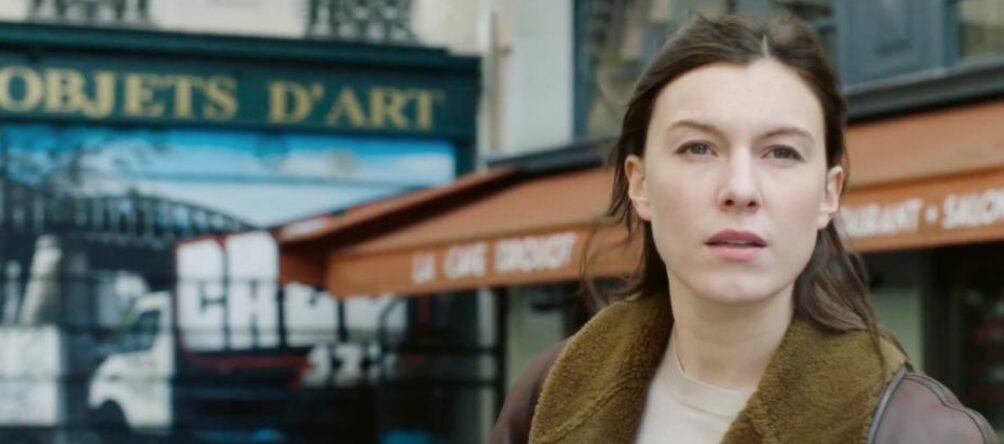
Four actresses stand out in a darkly sophisticated festival filled with unexpected (yipes!) varieties of French realism
Anytime a world-class film festival announces a horror movie as its Opening Night, brace yourself. The Animal Kingdom, a rude, frantic exercise in humans mutating into hybrid ‘critters’ spouting fur, whiskers and wings, marks the first time in Film at Lincoln Center’s partnership with Unifrance that a bone-crunching horror film has been elevated to the catbird seat in Manhattan’s 29-year-old Rendez-Vous. It signals to this unabashed Rendez-Vous fan to get a grip and hold on, sorting through one uncomfortably disturbing drama after another.
Like a village in rural Senegal, beset by drought, then pummeled with howling, blackout sands that rival the raw landscape savagery of MGM’s 1929 filming of Dorothy Scarborough’s novel The Wind, which concludes with its heroine “fleeing across the prairies like a leaf blown in a gale, borne along in the force of the wind that was at last to have its way with her” (Banel and Adama). Or a grown clan from Parisian projects that pulls a heist on the wrong guy—a Middle Eastern prince—and pays a grim price, only to be followed by an army sniper pal from the projects who becomes their singular revenge agent (The Temple Woods Gang). Or a lone young rebel ejected from his high-rise home that’s been declared unsafe for habitation, crashing into the interim mayor’s residence on Christmas Eve and terrorizing his wife and daughter (Les Indésirables).

A lot of this fest is edgy; it’s razor’s edge storytelling of the highest order. And it’s anchored by four actresses who exemplify the ever-shifting social, political, and cultural dynamics of French cinema. Let’s make that French art cinema. The reigning women here are Louise Chevillotte in Auction, Virginie Efira in All to Play For, Anta Diaw in Les Indésirables, and Marion Cotillard in Little Girl Blue. They’re all highly intelligent, high-functioning women up against unsupportive systems, laws, rules, regulations, and men. Do they conquer?
Auction: Pascal Bonitzer: 2023: France: 91 minutes
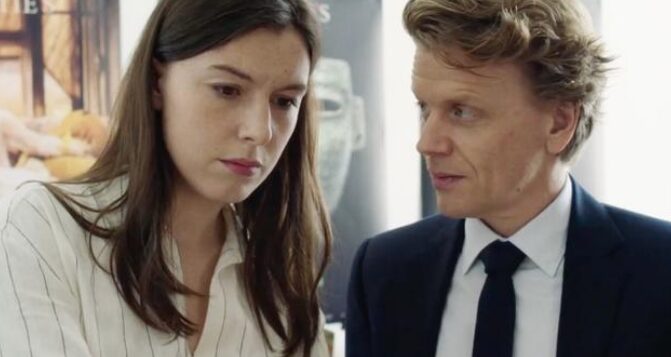
As noted, another picture opens this U.S. Rendez-Vous. But a month ago in Paris, Auction was the Opening Night selection in Unifrance’s Rendez-Vous. It’s director Pascal Bonnier’s ninth film, and surely his smartest, sleekest, most wickedly assured script in a sixty-year screenwriting career. If you’ve ever hankered to eavesdrop behind-the-scenes on the high-end auction component of the art marketplace, this is your movie.
Aurore (Louise Chevillotte), a new intern to André Masson (Alex Lutz), a managing partner and auctioneer in a Paris firm, watches silently as her boss smoothly assures a wealthy and bigoted dowager that her million dollar painting will never find its way to a daughter she hates. André has “stacks of clients” like this. What he likes is the hunt—“playing Indiana Jones” and chasing after undiscovered paintings of immense value. Aurore initially plays her role obediently, vowing to “help whore” for her boss. She still leans on her father, who’s living modestly, to help cover her rent, and she seems secretly disgusted by the corporate culture she’s joined for the money. But as we’ll gradually learn, Aurore is a practiced liar, has a hidden family background in rare collectibles, and isn’t playing with a full deck, either. (No one does this kind of disguised intrigue better than veteran French moviemakers.)
Meanwhile, in a rural enclave, the scene shifts to a working class family who’s just gotten in touch with a local attorney, Mme. Egerman (Nara Hamzawi). The family has in its possession what turns out to be an original 1919 painting of sunflowers by the world renowned artist Egon Schiele. Most of the Austrian painter’s “degenerate” and eroticized paintings of women are known to have been seized by Nazi troops in 1939, under the direction of Adolf Eichmann. The sunflowers’ finder is the family son, Martin (Arcadi Radeff), a contented factory worker. The lawyer contacts André, who travels with his ex-wife Bertina (Lea Drucker), another expert art appraiser, to view the canvas. They instantly authenticate it. Looks like André has himself another Indiana Jones whopper payday, this time in the $10-12 million range for starters.
(It’s useful here to pause this review and summarize recent news that will quicken your interest in Auction’s plot. Last September global media reported on a ceremony and press conference in Manhattan at which seven drawings by Egon Schiele were being returned to their former owner, whose art collection had been stolen by the Nazis during World War II. The early 20th century works were all “voluntarily surrendered” by the collectors and institutions that held them, including the Morgan Library and the Museum of Modern Art.)
As André and his auction house prepare to sell off the abandoned sunflowers painting, the issue of provenance is quickly introduced. Multiple heirs lay claim, and this is where the movie’s hijinks really take off. There are more twists and turns, deceptions and betrayals, in Bonitzer’s knowledgeable screenplay than in—well, a field of sunflowers. Lutz’ adventurous auction head, Drucker’s shrewd art buff, Hamzawi’s country lawyer, and Radoff’s pure-as-driven-snow factory lad are a pluperfect acting company, as is every impeccably cast support person in a big cast. This is one dazzling movie to get deliriously lost in.
Louise Chevillotte’s Aurore is the one you’ll keep your eye on. There’s a scene deep in all the zillion dollar shenanigans that’s a dilly. In its way it resembles the centerpiece scene in the 2011 Wall Street drama, Margin Call, which traces a world-class brokerage firm leveraging itself out of existence in a single day. There, the junior trader on the floor, played by Zachary Quinto, patiently explains to the embattled CEO, played by a bewildered Jeremy Irons, a simple basic that Irons long ago forgot. The junior trader becomes the smartest guy in the room. Here, it’s Aurore giving a revelatory lesson in auction strategies to André. Only here, at long last, the smartest guy in the room is a woman.
All To Play For: Delphine Deloget: 2023: France/Belgium: 112 minutes
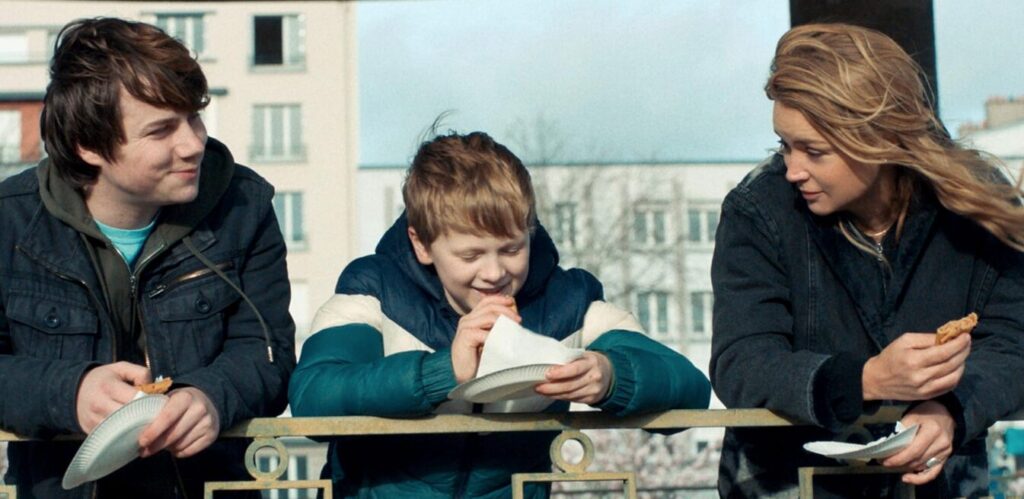
At 46, Virginie Efira is not yet considered a French screen legend, but she’s on a roll. Her singular strengths are warmth and empathy. That’s a different signature persona from nearly all her predecessors – including Isabelle Huppert, Catherine Deneuve, Jeanne Moreau, Brigitte Bardot, Michele Morgan, and Danielle Darrieux. Efira’s had five dramas in this and the most recent annual Rendez-Vous festivals, and four of them—Madeleine Collins, Other People’s Children, Revoir Paris, and now All to Play For —are this critic’s choices. Four out of five ain’t bad.
As Sylvie, a widowed mom with two young sons, working night shifts as a bartender, and days as caregiver for a neighbor’s baby, Efira’s at her best when the movies she chooses throw everything they’ve got against her. Sylvie lives in a ramshackle farmhouse; there’s a wasted ex-con younger brother lolling about, and a hen in residence. Sylvie’s a modern day Good Time Girl, a tireless, ambitious, overworked and controlling mom who smokes, drinks, and entertains dreams of moving to Spain as a music programmer. And Efira fully inhabits the role; like all screen legends, you can’t imagine her ever playing anyone else.
One late night while she’s bartending, her 8-year-old son Sofiane (Alexis Tonetti), who’s had no dinner, starts an oven fire. His teen brother J.J. (Félix Lefebvre), who had late trumpet practice and is usually attentive, wheels him with second degree burns to the town ER in a shopping cart. The hospital report moves from police to child welfare. Mme Henry (India Hair) promptly arrives with the DA’s order (absent mother/child in danger) to remove the healing boy to a foster home for two weeks, prior to a formal court hearing. Sofiane’s subject to seizure “episodes” and hitting. Sylvie has to be threatened with handcuffs before she angrily releases her son. All to Play For is pushing against Efira from the beginning and will push a lot harder.
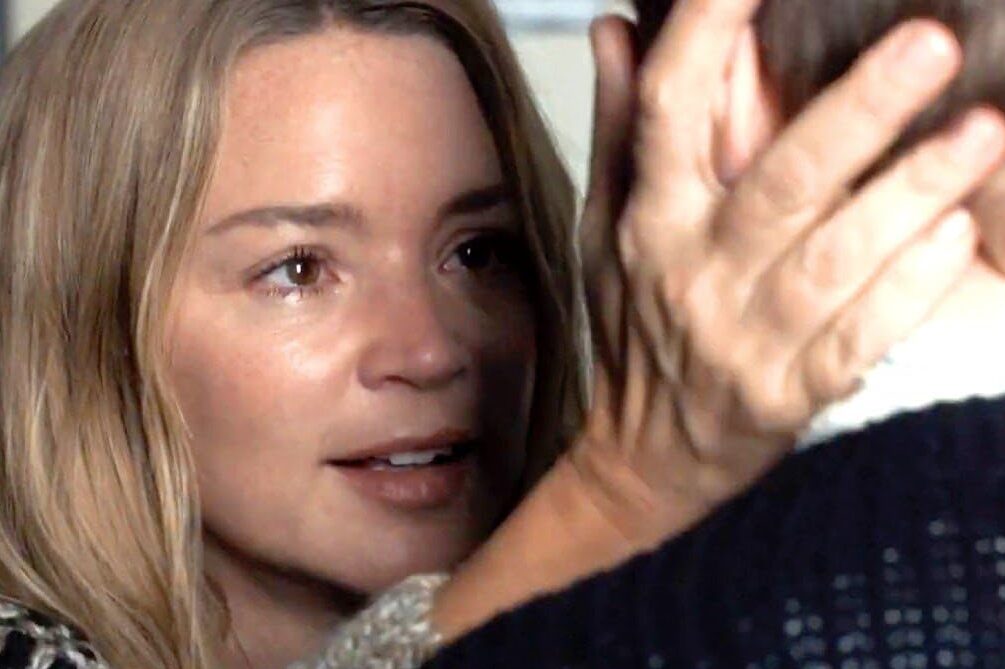
Sylvie tries having her few friends compose letters attesting to her good character. The bar floods. She joins a support group, many of whom haven’t seen their seized children for two to twelve years. Her older brother Alain (Mathieu Demy) talks his employer into giving Sylvie part-time work handling customer complaints, a job we know won’t last. The court mandates six months of additional confinement with occasional visits. The boy wrecks his room, causing 600 Euros worth of damage. Ritalin is recommended. Sylvie’s visits are suspended. We fear for her as she weaves a sense of acute dread into this increasingly anxious and nerve wracking drama.
Which, for its debuting feature director, Delphine Deloget, must be viewed as an artistic triumph. It’s not common for a marquee star to put her entire range of acting prowess into the hands of a first time director. Maybe it’s woman-to-woman trust, as more female directors find global platforms. Deloget also draws finely nuanced performances from the boys playing her sons, as well as Ms. Hair, extraordinary as a French child welfare administrator, a by-the-book autocrat who still manages to reveal a heartfelt humanity.
Les Indésirables: Ladj Ly: 2023: France/Belgium: 104 minutes
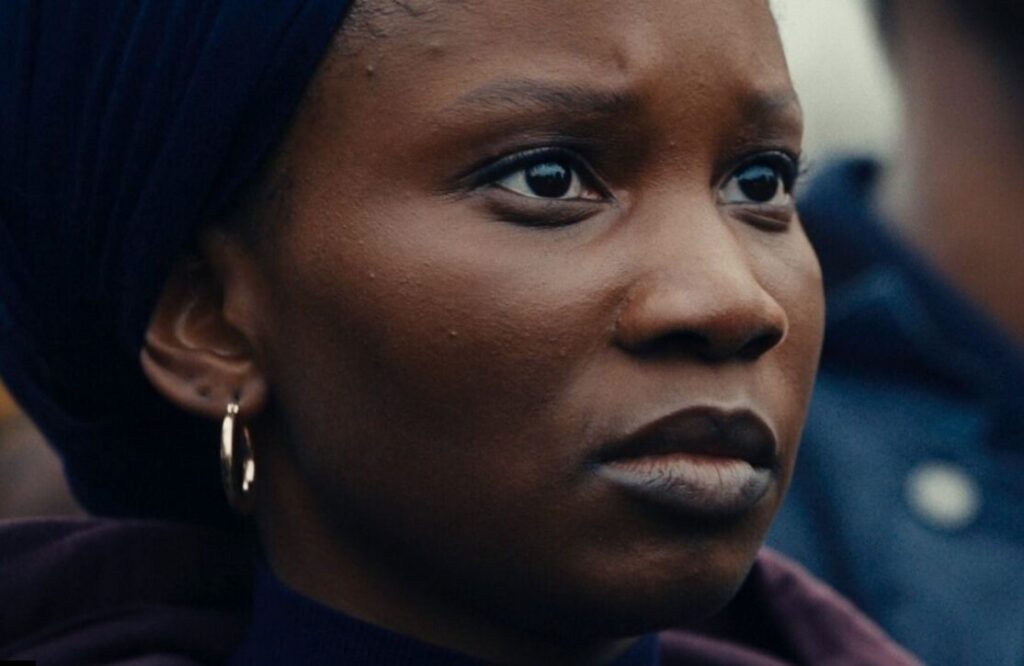
Haby (Anta Diaw) is the newcomer and indisputable star of Ladj Ly’s grim followup to his debut feature of 2019, Les Misérables. That was one day in the chaotic life of an immigrant Parisian community and its jarring relations with French authorities. Les Misérables won multiple French Cesar Awards and was nominated for an Oscar for Best International Film, losing to the bloody Parasite. Ly’s movie starred Alexis Manenti and Jeanne Balibar as officers in a Montfermeil crime unit, plus the Cameroonian powerhouse Steve Tientcheu as the mayor. All three return in Les Indésirables, but here it’s one woman, played by Diaw, who’s tasked to represent the cries of a community reaching out in crisis. She’s a revelation.
We discover Haby mourning the death of her grandmother in the family’s crowded high-rise apartment. The coffin has to be shouldered and maneuvered down many flights of graffiti-scarred stairs by mourners, as the elevator stopped working years ago. The government has already cleared and dynamited down a neighboring tenement, causing the mayor to suffer a fatal stroke in the ensuing dust storm. When a pediatrician and deputy mayor, Pierre (Manenti), becomes interim mayor, the stage is set for Pierre and Haby (an intern archivist at city hall and head of a neighborhood association finding housing for families) to square off. Pierre’s loyal wife Nathalie (Aurélia Petit) is not optimistic, warning him “there are neighborhoods you’ve never been. You have no idea how they live.”
Before governmental hypocrisy and broken social systems collide and implode, there’s a crucial scene between Haby and Roger (Tientcheu). He’s the mayor’s massive wingman and a 15 year veteran of the city’s continuing clashes with its immigrant populations. Roger has the most cred among the residents of Haby’s building because, as her mother observes, “he’s very big and very Black.” Consider their dialogue, laid out like live ammunition by Ly and his co-screenwriter, Giordano Gederlini:
HABY: Why are you trying to screw us? How will you house big families in two-bedroom apartments?
ROGER: You mean filling an apartment intended for a normal family with 15 cousins and aunts from the old country? Why rebuild a neighborhood just to end up with the same old problems?
HABY: These buildings are like ten-story favellas!
ROGER: We’re talking about troublemakers… we can’t make room for all the world’s misery.
HABY: Didn’t your folks come from Africa?
ROGER: Yes, but unlike some, they didn’t live on handouts.They worked hard.
HABY: I can’t deny you must be working hard to be the mayor’s bitch.
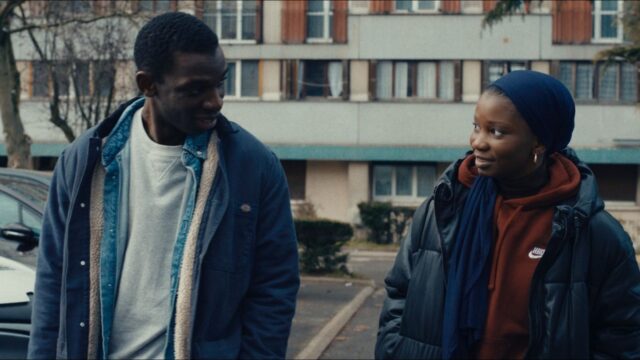
It’s not long until Haby declares her candidacy for mayor. Her one blind spot is a crush on Blaz (Aristole Luyindula), a handsome young firebrand with a slow-boiling temper. When an illegal cooking fire starts to spread to other floors in her building, leaving Haby’s mom in critical condition, the police evacuate the building on Christmas Eve. The only way residents can move their furniture is out their windows. Blaz loses it. He trashes the mayor’s house and asks Haby to flee with him by motorbike. Will she?
Ly’s sophomore feature is a wrenching, painful tragedy. Diaw’s Haby is never less than riveting, but Ly’s script, working on tenterhooks from his own life in the projects, rules out any chance of victory. Every actor above, including Jeanne Balibar as a world weary administrator on the mayor’s team, brings their A-game to the director and his script. It can’t have been an easy shoot.
Little Girl Blue: Mona Achache: 2023: France/Belgium: 99 minutes
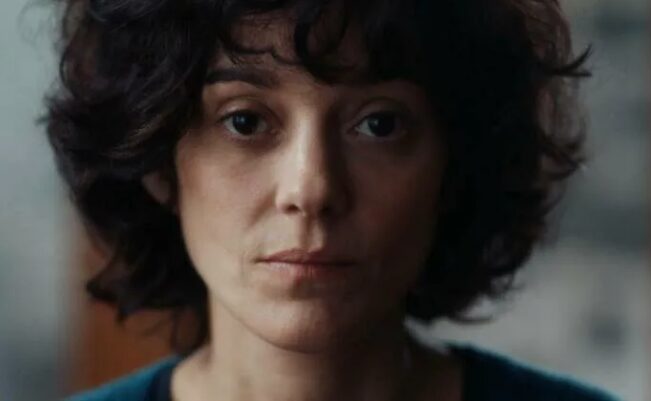
Is the very thought of enduring another French downer exhausting? Would you be up for one last evening entirely under the care and supervision of Marion Cotillard? You couldn’t pick a more enchanting star, you know. Cotillard won an Oscar becoming the “little sparrow” and legendary chanteuse Edith Piaf in La Vie En Rose over a decade ago. Her films have taken in three and one half billion dollars. She’s now the ambassador for Chanel No. 5 perfume, dancing across the moon on tippy toes. Settle back for a master class in the actress’s art.
Writer/director Achache must have sensed Cotillard could not only play the role of her mother – Carole Achache, a little remembered supporting player in French cinema of the 70s and 80s whose screen name was ‘Carole Lange’—but in the process help unravel why at 63 Carole hung herself. The actress was also a fairly obscure but published novelist and still photographer. None of her four books are collectable today, and all are under $25 online. Perhaps Cotillard was drawn to recreating the life of a literary and film personality almost totally forgotten—a million miles from Edith Piaf.
Little Girl Blue is a subtly invigorating hybrid—what your reviewer calls a cine memoir, both factual and imagined. It’s an actress assigned to help her director figure out her mom’s unhappy life and suicide. Because we come to Cotillard’s portrayal knowing little or nothing about its subject, it’s entirely in the hands of the actress to re-invent a person of highest personal importance to her director. That’s an uncommon concept for a movie, and Cotillard doesn’t waste a moment making it work.
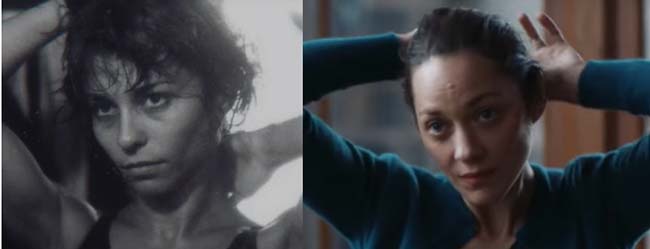
The film opens with Marion entering Mona’s studio for the first time. There are dozens of boxes of the memorabilia of a lifetime strewn about, and thousands of snapshots pinned to the walls. The director and actress look at each other for a long time without speaking. Then Achache slowly hands over her mother’s everyday wardrobe – jeans, tee, scarf, handbag, perfume, beads, rings, contact lenses, glasses, wig. Cotillard disrobes and dresses as Carole Achache. She’s beginning the process of transformation.
Like Nan Goldin, who archived much of her out-of-control early life through her photos, we learn quickly that Mona’s mom also led a life filled with ‘all the beauty and the bloodshed.’ Her father came out as gay when she was a child. Her uterus had to be removed in an early childhood operation. As a pre-teen, she was befriended by, and had carnal relations with Jean Genet, France’s darker-than-dark literary darling. She also had sex with Genet’s male lover. In Paris in the 1950’s, her circle included writing giants Albert Camus and Margarite Duras. “No one wrote about happiness.” This is where Achache first began thinking about suicide.
As Cotillard builds her knowledge of her subject through Carole’s notebooks, diaries and the snapshot wall, she begins to interpret the late Achache’s decline back to her daughter, and to us. During the college years in France, Carole linked up with anarchists, discovering LSD and heroin. She stole scripts by Genet and sold them for money, and when the money ran out, she started selling her body. Moving to Manhattan where “there was no one more sordid than an American,” she became a full-time sex worker. Add to that her tortured memories under the twisted spell of Genet, and her nightmares of her own mother being gang-raped after a bullfight in Baracelona streets. The film makes Genet, one of Grove Press’s major cash cows in that era, the trigger and major cause of Achache’s suicide. At one point the narrative tension is so great that Achache the director and Cotillard the actress collapse in each other’s arms in tears.
The shadow of Marguerite Duras (also a key Grove author) similarly hangs heavy over Little Girl Blue, as the author was known for advocating either suicide or writing as the only solutions to an insufferable life. But it’s the title tune, Little Girl Blue, penned by the great American songwriters Richard Rodgers and Lorenz Hart in 1935, and sung over the closing credits by Janis Joplin, that nails the epitaph to Carole Achache and to Marion Cotillard’s towering performance. A few random lyrics say it all: “Oh honey, I know how you feel, I know you feel like you’re through…And I know you ain’t got no reason to go on…”
This concludes critic’s choices. Watch for Brokaw’s picks in the 39th edition of New Directors/New Films festival, co-sponsored by Film at Lincoln Center and The Museum of Modern Art, April 3-14.
Regions: New York
